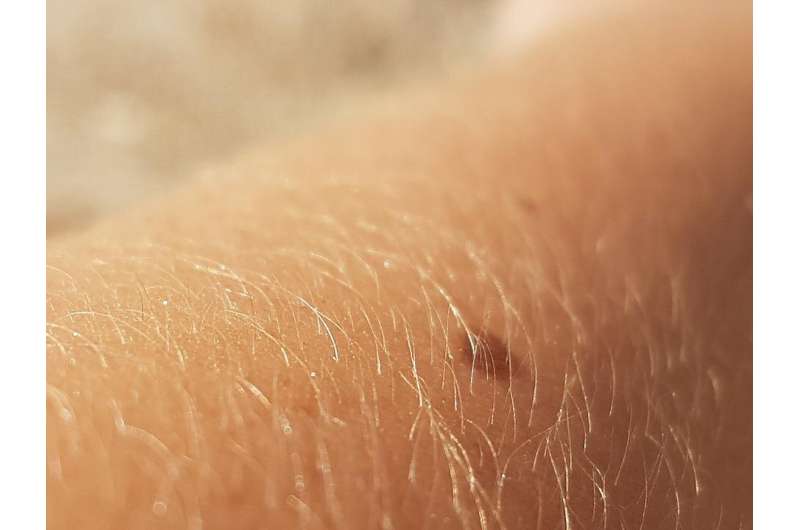Using artificial intelligence to diagnose cancer

During her Ph.D., Dr. Qurrat Ul Ain developed a computer-aided diagnostic system that can identify certain characteristics of the disease from a photograph of a skin lesion.
"Skin cancer has certain unique visual features that help to differentiate it from normal skin," Dr. Qurrat Ul Ain says. "These include color, texture, and the shape of lesions. By showing our artificial intelligence program images of cancerous skin, we were able to teach it to identify cancer when shown other photographs."
Dr. Qurrat Ul Ain's diagnostic system achieved a 100% accuracy rating in identifying images of melanoma based on the more than 600 images tested so far. Compared with similar diagnostic tools, it was also better at identifying other skin cancers, accurately identifying 26% more lesions, she says.
Another feature of the diagnostic tool is that it can be used to help identify skin cancer even when images are taken with different devices, Dr. Qurrat Ul Ain says.
"With advances in technology, dermatologists can get help from computer programs when determining a diagnosis," Dr. Qurrat Ul Ain says. "However, these computer programs need images taken on special camera equipment in order to provide an accurate diagnosis. The AI I have developed can detect cancer in images taken on a smartphone.
"This is particularly exciting because it means my diagnostic tool could assist people in rural areas who often don't have easy access to specialist medical care. People could take a photo on their phone or any camera and then use the diagnostic tool to help identify potentially cancerous areas."
The tool could also be used in dermatologists' offices, where medical practitioners could feed in images of a patient's skin and receive a near-instant result on whether the patient showed signs of skin cancer.
Skin cancer is a serious issue in New Zealand. It is estimated that over 80,000 New Zealanders get non-melanoma skin cancers. In 2019, 2730 people were diagnosed with melanoma and 328 people died from it. Overall, more people die from skin cancer than die on our roads each year.
"Identifying cancer early is really important—if melanoma is diagnosed at any early stage, for example, the survival rate increases up to 92%," Dr. Qurrat Ul Ain says.
Dr. Qurrat Ul Ain is excited about what she has achieved so far but says there is still more research to be done.
"There are ways to make the tool more effective and able to identify more features, including atypical pigment networks and the blue-whitish cast common to some cancers, which I would like to focus on," Dr. Qurrat Ul Ain says. "I also want to explore if this tool can be used to identify other cancers, including breast and lung cancers."



















